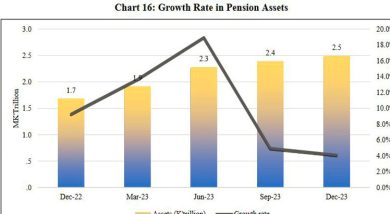Malawi Mangoes explores water transport to cut costs
Malawi Mangoes, a Salima-based large-scale commercial fruit farming and processing enterprise, is exploring water transportation to reduce the cost of exporting its products.
The firm’s managing director Charlie Leaper said in an interview yesterday that since Malawi is land-locked, transportation is a huge cost to the company.
“For example, in 2017 we entirely depended on air freight for our fresh mangoes to Dubai [in United Arab Emirates] and Kuwait. We are working with major freight carriers and we are targeting water transport for bulk transportation of fresh mangoes to the Middle East,” he said.

to grow
According to Leaper, their desire is put Malawi on the global map as the exporter of high-quality mango products.
“Export barriers such as phytosanitary and plant protection requirements are an area that we are working on with the Ministry of Industry, Trade and Tourism and other bodies in the regions we are targeting to export,” he said.
In an interview, Ministry of Industry, Trade and Tourism spokesperson Wiskes Nkombezi said they are working closely with other governments on phytosanitary issues so that Malawi Mangoes’ products are exported with ease.
“We are working with the government of India on phytosanitary certificates,” he said.
Two weeks ago, officials from the company were in India where they participated in the 13th Confederation for Indian Industry (CII) Exim Bank Conclave on India/Africa Project Partnership.
At the conclave, the company unveiled plans to expand its export base to European and Indian markets.
It also announced plans to move into selling dry mangoes, rather than just focusing on fresh ones.
The firm is currently not permitted to export to India. It is one of the many companies in Africa affected by delays by the Indian Government to process sanitary and phyto-sanitary certificates, according to Leaper.
He said: “The key thing for us is to get fast access into the Indian market. Malawi being one of the least developed countries, we have a duty-free status already in place.
“So, for us, what is remaining is to convince the Ministry of Agriculture in India so that we can get pest and disease-free fresh mangoes into their country.”
At the CII-Exim Bank Conclave indaba, the firm was looking for a partnership with foreign firms to expand commercial farms and other production-related needs.
Figures from the company show that since its inception, it has exported over 2 500 metric tonnes (MT) of mango puree.
The company, which works with over 5 000 smallholder farmers in Salima, intends to expand its current plantation to 330 hectares in 2018/19 agricultural season, which will enable it yield over 8 500MT of mangoes by 2024. n





